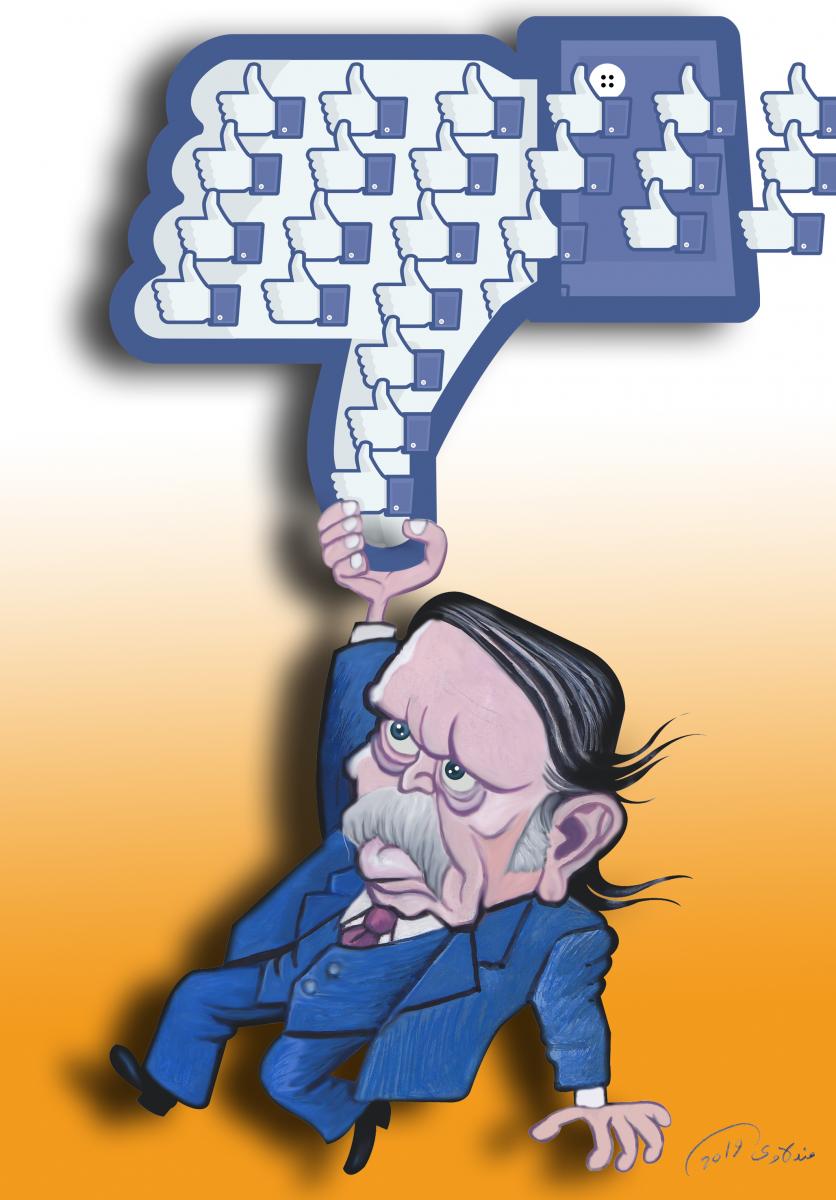
1 - Abdelaziz Bouteflika was born on March 2, 1937. Some biographers say Bouteflika was born in Tlemcen, western Algeria, and others give his place of birth as Oujda, just over the border in Morocco.
2 - In 1956, at the age of 19, Bouteflika fought in the 1954-1962 war to end French colonial rule. He joined the rebellion against French rule as a protege of Houari Boumediene, a commander who would later become Algerian president. He quickly rose in through the party ranks and was appointed administrative secretary for the fifth Wilaya - Arabic for province - in 1957, effectively charging the young officer with reporting on the situation in his ancestral region.
3 - After independence, Bouteflika was named minister for youth, sports and tourism at the age of 25 in the country’s first post-independence administration under the leadership of President Ahmed Ben Bella. The following year he became the world’s youngest minister of foreign affairs - a record he still holds today.
3 - Bouteflika participated in the 1965 coup, led by Boumedience, that removed Algerian President Ahmed Ben Bella (1963–65) from power and installed Boumedienne. Bouteflika continued to serve as foreign minister in the new government, and, by the time of Boumedienne’s death in 1979, Bouteflika seemed well positioned to replace him in the presidency. However, when Boumedienne died, Bouteflika lost his mentor and his potion as foreign minister. An investigation was launched into financial impropriety. Bouteflika said the allegations were invented as part of a political plot.
4 - By the end of the 1970s, though, Bouteflika had fallen from favour at home and he left Algeria in the early 1980s and settled in Dubai, where he became an adviser to a member of the emirate’s ruling family. He returned home in 1987 but kept a low profile, refusing offers of government posts.
5 - Little is known about his private life. Official records mention no wife, though some accounts say a marriage took place in 1990. Bouteflika lived with his mother, Mansouriah, in an apartment in Algiers, where she used to prepare his meals.
6 - He returned to public life when Algeria was being ravaged. The military-backed government annulled a parliamentary election in 1992 that Islamists were on the verge of winning. In the conflict that followed, whole villages were massacred and civilians walking in city streets had their throats slit. The conflict killed an estimated 200,000 people.
7 - Bouteflika, backed by the military, was elected president in 1999 with a pledge to stop the fighting. He negotiated a truce to end the fighting and wrested power from the secretive military-based establishment known as “le pouvoir” (the powers-that-be). As president, Bouteflika focused on rebuilding the country and strengthening Algeria’s international reputation. He also granted wide-ranging amnesty to militant Islamist groups within Algeria in an effort to resolve a long-standing civil conflict.
8 - He won re-election in 2004 and again in 2009 despite having experienced health problems in 2005 when French doctors operated on him for what officials said was a stomach ulcer. Leaked U.S. diplomatic cables said he was suffering from cancer. He became weaker after his mother died in 2009. The 2009 election was said to have received more than 90 percent of the vote, was harshly criticized by opposition groups, who claimed the poll was marred by widespread fraud and voter intimidation.
9 - With a cushion of foreign reserves and a population wary of major upheaval after their civil war, Algeria avoided the Arab Spring revolutions that toppled leaders across the region in 2011.
But protests against poor living standards, the lack of job opportunities and services were common.
10 - Already limited by fragile health, Bouteflika suffered a serious stroke at the start of 2013 which put him into a Paris hospital for three months. He was seen little in public after returning to Algeria to convalesce. In April 2014, Bouteflika was elected for a fourth term with 81.5 percent of the vote, despite not campaigning and voting from a wheelchair.
11 - In 2016, Bouteflika tightened his grip on power by disbanding the DRS intelligence agency, considered by many a “state within a state”. Its chief, the powerful Mohamed Mediene, had been already been fired months earlier.
12 - It was announced in February 2019 that Bouteflika would seek a fifth term—ignoring the constitution’s new two-term limit—in order to continue the reforms begun in his fourth term. The announcement sparked protests, which continued to escalate in the following weeks.
13 - On March, as protests showed no sign of abating, more than 1,000 judges issued a statement declaring that they would not supervise the April 2019 presidential election if Bouteflika were to run, and the military indicated that it would stand with the protesters. Later that day Bouteflika dropped his bid for reelection but announced that the election would be postponed, the government would be reshuffled, and a new constitution would be drafted. Amid continued protests and pressure from the military, however, Bouteflika resigned on April 2.







